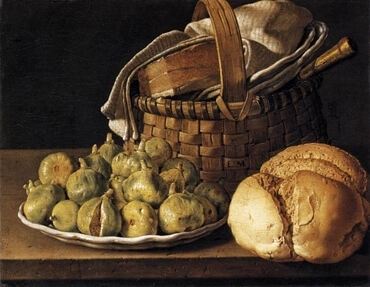1
Trubite u trubu na Sionu! Dižite uzbunu na svetoj mi gori! Neka svi stanovnici zemlje dršću, jer dolazi Jahvin dan. Da, on je blizu.
2
Dan pun mraka i tmine, Dan oblačan i crn. K'o zora po gorama se prostire narod jak i mnogobrojan, kakva ne bje nikad prije, niti će ga igda biti do vremena najdaljih.
3
Pred njim oganj proždire, za njim plamen guta. Zemlja je k'o vrt rajski pred njim, a za njim pustinja tužna. Ništa mu ne umiče.
4
Nalik su na konje, jure poput konjanika.
5
Buče kao bojna kola, po gorskim vrhuncima skaču, pucketaju k'o plamen ognjeni kad strnjiku proždire, kao vojska jaka u bojnome redu.
6
Pred njima narodi dršću i svako lice problijedi.
7
Skaču k'o junaci, k'o ratnici se na zidove penju. Svaki ide pravo naprijed, ne odstupa od svog puta.
8
Ne tiskaju jedan drugog, već svak' ide svojom stazom. Padaju od strijela ne kidajuć' redova.
9
Na grad navaljuju, na zidine skaču, penju se na kuće i kroz okna ulaze poput lupeža.
10
Pred njima se zemlja trese, nebo podrhtava, sunce, mjesec mrčaju, zvijezdama se trne sjaj.
11
I Jahve glas svoj šalje pred vojsku svoju. I odista, tabor mu je silno velik, zapovijedi njegove moćan izvršitelj. Da, velik je Jahvin dan i vrlo strašan. Tko će ga podnijeti?
12
"Al' i sada - riječ je Jahvina - vratite se k meni svim srcem svojim posteć', plačuć' i kukajuć'."
13
Razderite srca, a ne halje svoje! Vratite se Jahvi, Bogu svome, jer on je nježnost sama i milosrđe, spor na ljutnju, a bogat dobrotom, on se nad zlom ražali.
14
Tko zna neće li se opet ražaliti, neće li blagoslov ostaviti za sobom! Prinose i ljevanice Jahvi, Bogu našemu!
15
Trubite u trubu na Sionu! Sveti post naredite, oglasite zbor svečani,
16
narod saberite, posvetite zbor. Saberite starce, sakupite djecu, čak i nejač na prsima. Neka ženik iziđe iz svadbene sobe a nevjesta iz odaje.
17
Između trijema i žrtvenika neka tuže svećenici, sluge Jahvine. Neka mole: "Smiluj se, Jahve, svojem narodu! Ne prepusti baštine svoje sramoti, poruzi naroda. Zašto da se kaže među narodima: Gdje im je Bog?"
18
Tad Jahve, ljubomoran na zemlju svoju, smilova se svom narodu.
19
Odgovori Jahve svojem narodu: "Šaljem vam, evo, žita, vina i ulja da se njime nasitite. Nikad više neću pustiti da budete na sramotu narodima.
20
Protjerat ću Sjevernjaka od vas daleko, odagnat ga u zemlju suhu i pustu, prethodnicu u Istočno more, zalaznicu u Zapadno more. Dići će se njegov smrad, dizat će se trulež njegova." (Jer učini stvari velike.)
21
O zemljo, ne boj se! Budi sretna, raduj se, jer Jahve učini djela velika.
22
Zvijeri poljske, ne bojte se; pašnjaci u pustinji opet se zelene, voćke daju rod, smokva i loza nose izobila.
23
Sinovi sionski, radujte se, u Jahvi se veselite, svojem Bogu; jer vam daje kišu jesensku u pravoj mjeri, izli na vas kišu, jesensku i proljetnu kišu kao nekoć.
24
Gumna će biti puna žita, kace će se prelijevati od vina i ulja.
25
"Nadoknadit ću vam godine koje izjedoše skakavac, gusjenica, ljupilac i šaška, silna vojska moja što je poslah na vas."
26
Jest ćete izobila, jest ćete do sita, slavit ćete ime Jahve, svojeg Boga, koji je s vama čudesno postupao. ("Moj se narod neće postidjeti nikad više.")
27
"Znat ćete da sam posred Izraela, da sam ja Jahve, vaš Bog, i nitko više. Moj se narod neće postidjeti nikad više."







